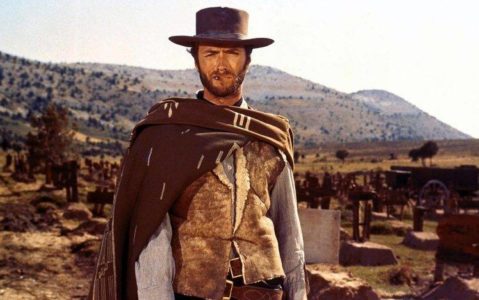
It’s not so much that Clint Eastwood wouldn’t SAY ‘cut’, it’s that he wouldn’t yell it since there’s already enough yelling going on around the set apparently since people do have to communicate and typically a director is going to be near the camera person and will be able to give the signal in a normal voice without having to yell. According to this the whole act of yelling is a little too much if it’s being done by more than one person since an assistant director might need to yell to those that are farther away in order to get them to do what they need to do while the director should be able to simply give the command without having to get too loud. For a lot of people on the set there’s a constant need to pay attention to a large number of cues that all mean different things and are designed to keep things rolling in a smooth and ordered fashion. With too many people yelling commands something might get lost and a production might stall as a result. Some people do yell the command while others like Eastwood will make sure that their crew understands the cues and how to take them.
On top of all this Clint Eastwood really isn’t a yelling person as he doesn’t do a lot of it in his movies thanks to the fact that his customary growl is more than enough to get a person’s attention. Imagine having that leveled at you for doing something he didn’t approve or was angry about, that’d be enough motivation to do the job right or simply walk off depending upon the situation. Plenty of directors do use the ‘cut’ and ‘action’ methods of stopping and starting a production when it’s needed, but whether they yell it or simply give a cue is all up to how they operate. For Eastwood yelling can kind of confuse the scene when a lot of people are looking to the director in order to know what to do and how to react, since many directors don’t always say cut right at the end of the scene in order to get more content and more expression from the actors. This can be kind of a detriment since there are plenty of actors that won’t take this cue as a means to keep acting but will wonder whether or not the director wants them to keep going. Those actors that have worked with a director on more than one movie might not have this issue since they know how the director works and how they like to run things. Some directors might be open about how they want to shoot a scene and some actors might even give a heads up to their costars as to what could happen should the director not say cut. There are a lot of ways to avoid confusion on this matter, but there are also many directors that will want to see how a scene can develop and if their actors will continue a scene on their own without any direction.
There are plenty of bloopers out there that have to do with this very issue as actors try to ad lib and go on their own but find that they either flub it or don’t know what to do, or they’re simply waiting for the director to yell cut. In some ways the role of a director feels like it’s very touch and go at times since some of them might want to keep tight to the shooting schedule while others might want to just wing it and see what happens. The only downfall of the latter practice comes when not everyone is aware of the idea and are looking to keep everything regimented and on track. Clint definitely sounds like the type of director that might want to get a little human emotion from the actors and therefore go a little longer into a scene, but he also sounds like the type of guy that would tell his actors beforehand to watch for his cue and not worry about just getting from one end of the scene to the next. This would be the way to go it feels since it might give the actors a little more leeway and also give them a chance to show what else they can do in terms of non-verbal acting since such scenes can say more than any dialogue could hope to at times.
Directing is by far one of the hardest jobs in show business just from the start since the individual in charge of the production takes all blame if something goes wrong but gets a fair share of the credit for the movie turning out the way it should. But it’s definitely a position of prestige for those that do it well.
 Follow Us
Follow Us




